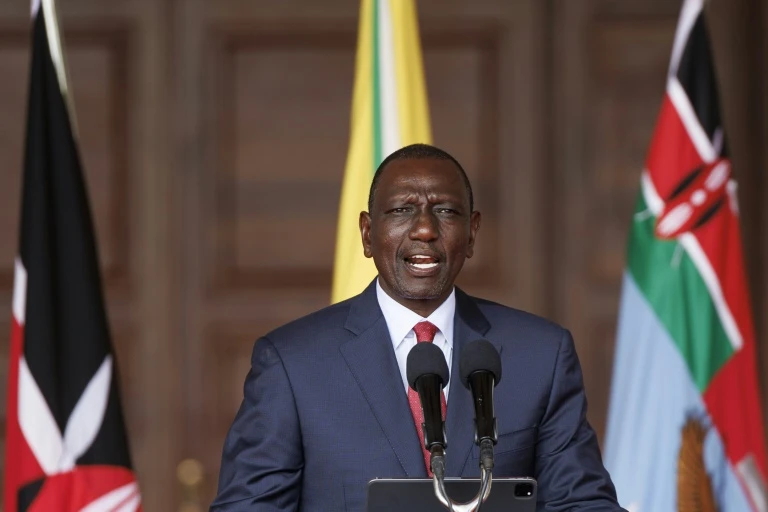Kenya's embattled President Ruto names new partial cabinet

Stay tuned with 24 News HD Android App

Kenya's embattled President William Ruto on Friday unveiled a new partial cabinet as he works to form a "broad-based" government, his latest bid to ease the worst crisis of his nearly two-year term in office.
The East African nation has been rocked by a month of sometimes deadly protests that began as peaceful rallies against controversial tax hikes but have morphed into a wider anti-government campaign calling for Ruto to go.
In a televised address, the Kenyan leader listed 11 names for ministerial posts and the position of attorney general, just over a week after he sacked almost his entire cabinet.
"While the events of the past month have caused tremendous anxiety, concern and uncertainty, the crisis has presented us with a great opportunity, as a nation, to craft a broad-based, and inclusive citizen coalition for national transformation and progress, made up of Kenyans from all walks of life," Ruto said.
"Consequently, I have started the process of forming a new broad-based cabinet to assist in driving the urgently needed and irreversible transformation of our country."
The appointments must be approved by parliament.
However, several of those nominated were members of the previous government, including Kithure Kindiki at the head of the interior ministry, which is in charge of Kenya's under-fire police force.
And the main opposition coalition Azimio has already declared it would not join any government of national unity.
Ruto has taken a series of measures to placate protesters, including scrapping the deeply unpopular tax increases and pledging cuts to what many see as lavish government spending.
But rallies led largely by Gen-Z Kenyans -- while much smaller than last month -- have continued across the country under the hashtag #RutoMustGo, with disgruntled activists also seeking action against corruption and alleged police brutality.
'Repudiate violence'
A total of 50 people have been killed and 413 injured since the demonstrations began on June 18, the state-funded Kenya National Commission on Human Rights said on Tuesday.
It has also reported that 59 people have been abducted or are missing.
Rights groups have said the police -- who are frequently accused of rights abuses and acting with impunity -- used disproportionate force against the protesters.
Kenya's acting police chief Douglas Kanja on Wednesday announced a ban on demonstrations in Nairobi's central business district, but the move was suspended by a High Court the following day.
The area has been the epicentre of many of the marches and the scene of violent and sometimes deadly chaos, particularly on June 25 when protesters stormed parliament and police fired live bullets at demonstrators.
Kanja had said the decision was taken after officials received "credible intelligence that organised criminal groups are planning to take advantage of the ongoing protests".
Activists have in the past accused "goons" of hijacking their rallies and stoking the violence, with reports of widespread looting and property damage on some occasions.
The US embassy in Nairobi on Thursday issued a statement to voice its concern about the violence that has shaken a nation generally considered to be a beacon of stability in a turbulent region.
"All actors -- police and protesters alike -- should repudiate violence and be held accountable for wrongdoing," it said.
